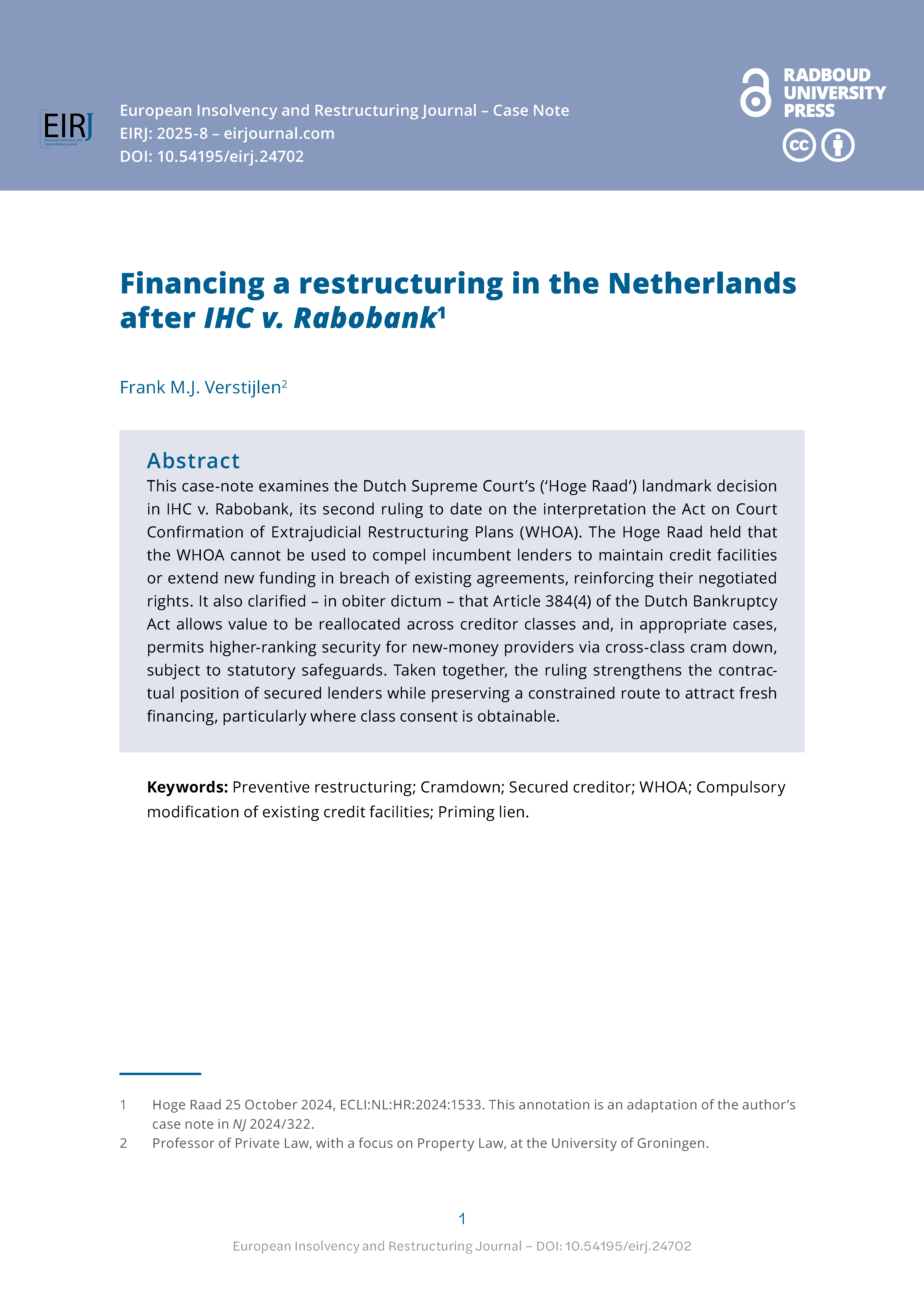Financing a restructuring in the Netherlands after IHC v. Rabobank
DOI:
https://doi.org/10.54195/eirj.24702Keywords:
cramdown, Preventive restructuring, priming lien, WHOA, secured creditor, Compulsory modification of existing credit facilitiesAbstract
This case-note examines the Dutch Supreme Court’s ('Hoge Raad') landmark decision in IHC v. Rabobank, its second ruling to date on the interpretation the Act on Court Confirmation of Extrajudicial Restructuring Plans (WHOA). The Hoge Raad held that the WHOA cannot be used to compel incumbent lenders to maintain credit facilities or extend new funding in breach of existing agreements, reinforcing their negotiated rights. It also clarified – in obiter dictum – that Article 384(4) of the Dutch Bankruptcy Act allows value to be reallocated across creditor classes and, in appropriate cases, permits higher-ranking security for new-money providers via cross-class cram down, subject to statutory safeguards. Taken together, the ruling strengthens the contractual position of secured lenders while preserving a constrained route to attract fresh financing, particularly where class consent is obtainable.
Downloads

Downloads
Published
Issue
Section
License
Copyright (c) 2025 Frank Verstijlen

This work is licensed under a Creative Commons Attribution 4.0 International License.



